A 65-year-old man had recently retired and was looking forward to a six-month cruise around the world with his wife. But things took an unexpected turn when he was diagnosed with non-small cell lung cancer (NSCLC) associated with epidermal growth factor receptor (EGFR) mutations, a common subtype of the most prevalent form of lung cancer.
The news left him devastated – not just by the illness, but by the thought of letting go of a long-cherished dream. “The couple had planned it for years,” shared Mr Mark Brooke, CEO of Lung Foundation Australia. “I told him, ‘The cruise doesn’t have to be cancelled – just postponed or shortened. But first, let your healthcare team know it’s important to you.’”
Mr Brooke explained that many patients with lung cancer have deeply personal aspirations and plans that can influence their treatment choices. “One patient might want to walk his daughter down the aisle; another might hope to be there for the birth of a grandchild,” he shared. “And for younger patients, often the breadwinners, it’s about keeping life as normal as possible for their families.”
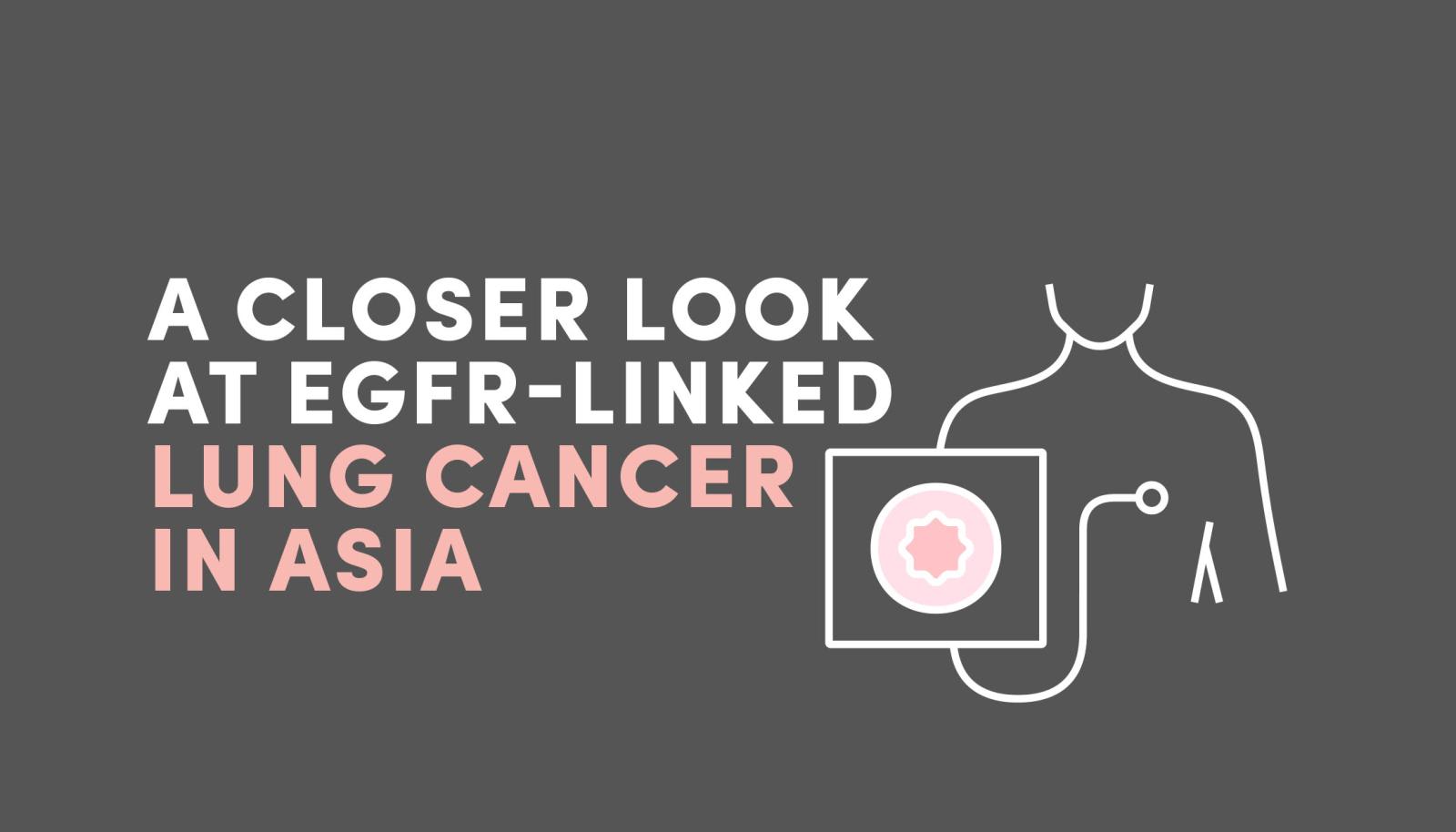
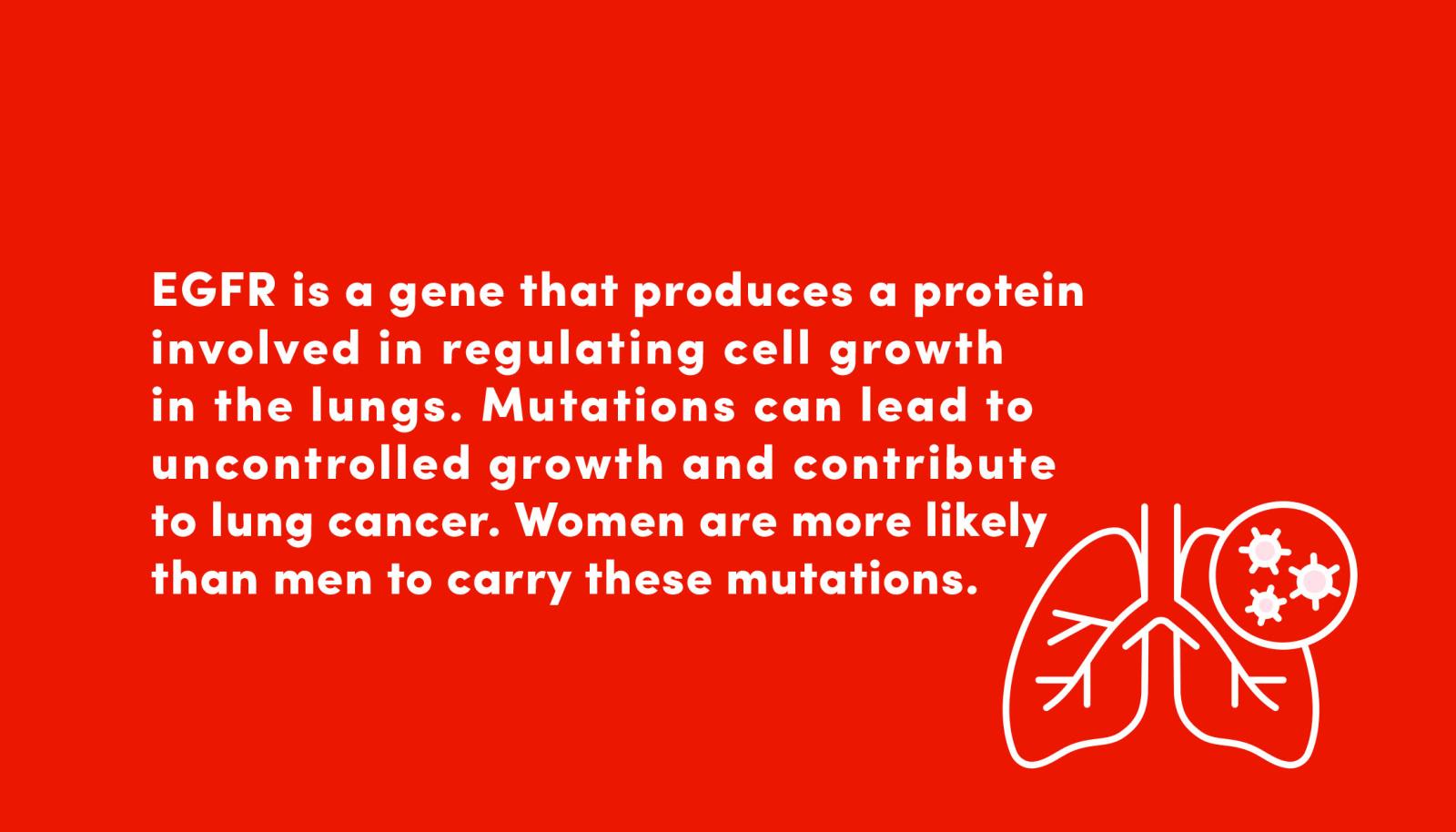
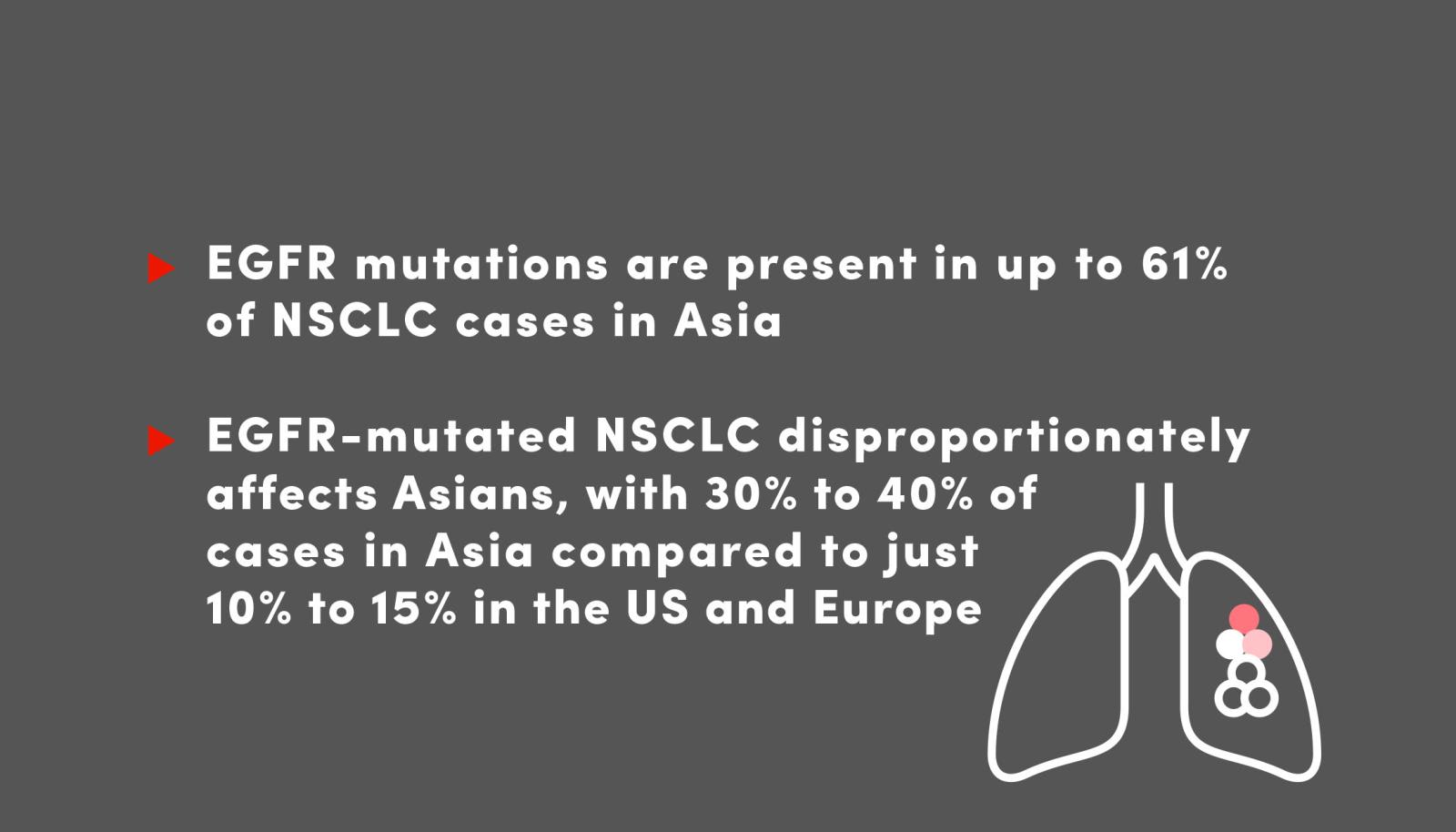
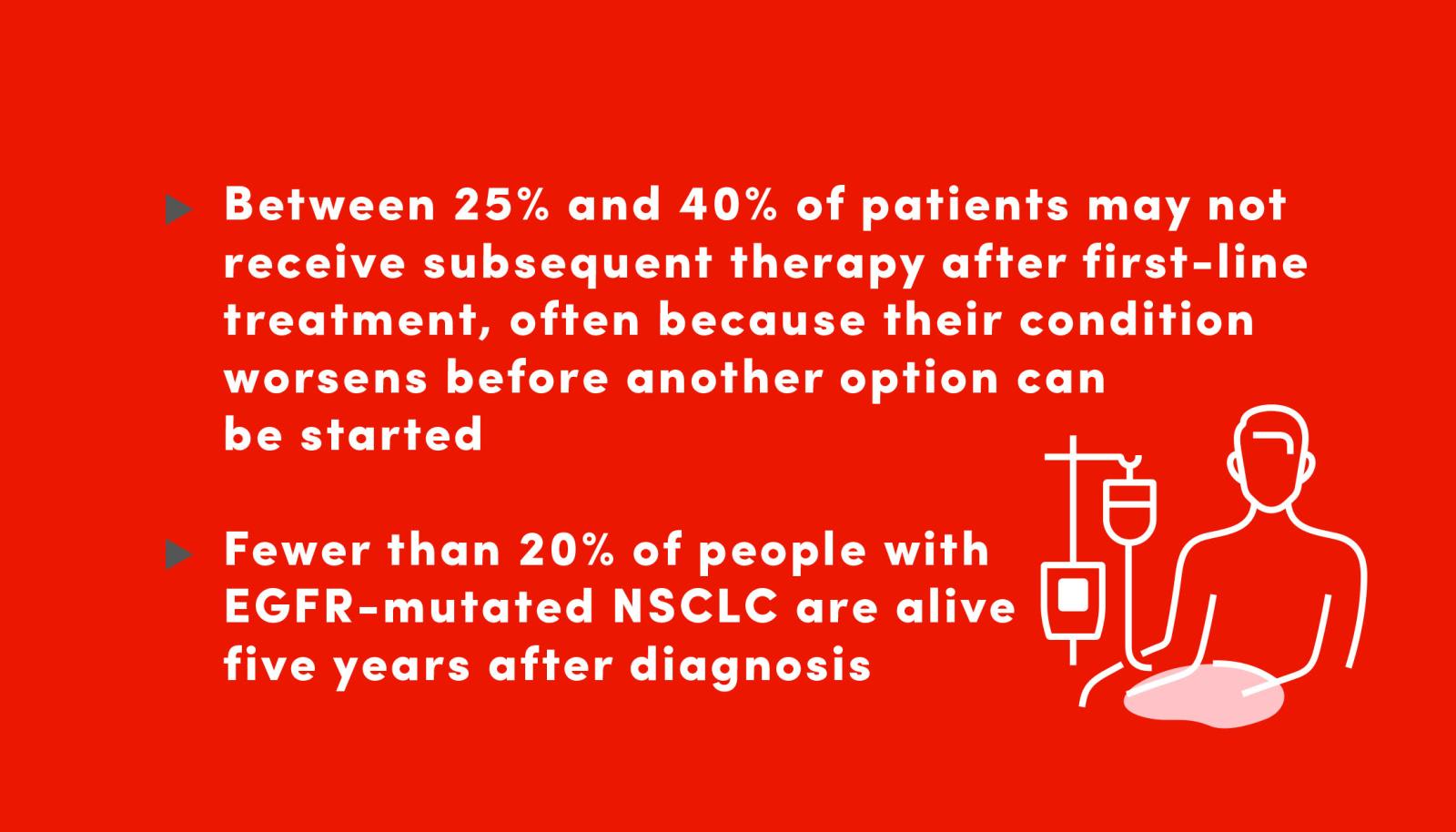




MAKING YOUR VOICE COUNT
After a diagnosis, patients face more than medical decisions – they also have to express what matters most to them.
Professor James Chih-Hsin Yang, director of the National Taiwan University Cancer Center, emphasised that effective treatment planning depends on patient involvement. “Age, gender, cancer mutation type, the extent of disease spread and support systems – including caregiver time and financial resources – all influence treatment choices and help shape a strategy that aligns with the patient’s goals,” he said.
Prof Yang noted that with more therapies now offering improved survival outcomes, shared decision-making has become more important than ever. While some options may cause side effects that affect daily life, most can be well-managed with support from the healthcare team. “That’s why it helps for patients to take time to reflect on their needs,” he said. “Only then can they and their care team choose a path that supports their well-being and goals.”
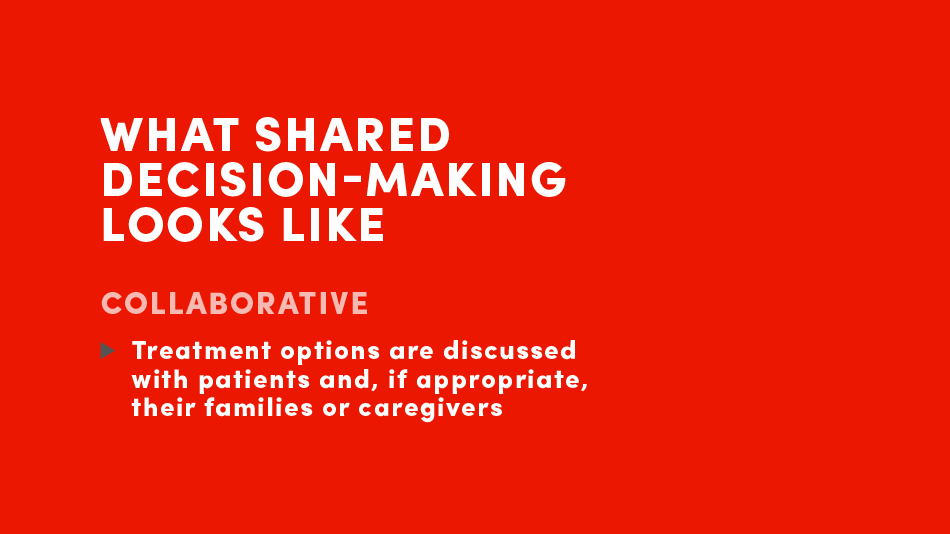
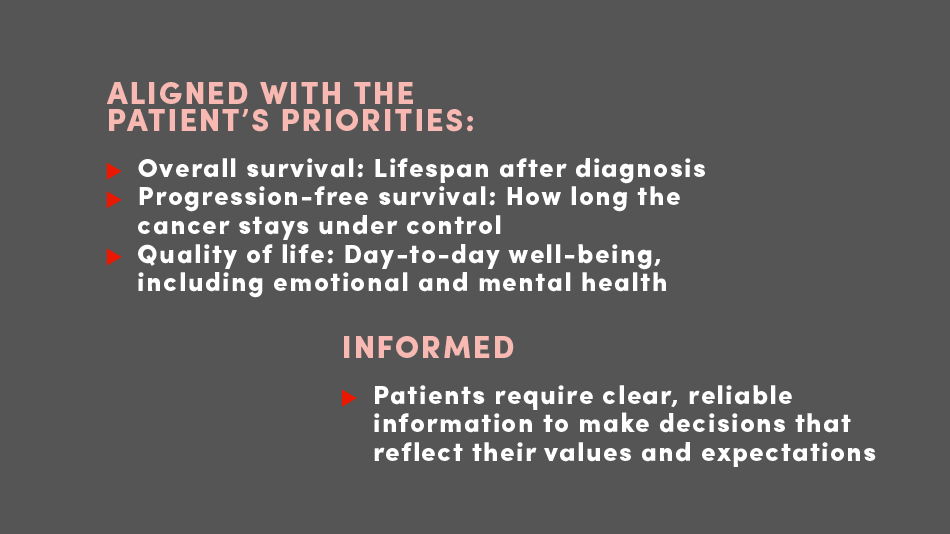
BARRIERS TO PATIENT INVOLVEMENT
Still, many patients hesitate to speak up about their concerns and priorities. A regional study published in Future Oncology found that up to 77 per cent of patients trusted and relied on their physicians to decide what was best – even though 69 per cent of doctors actively encouraged patients to contribute to their treatment decisions.
According to Mr Brooke, a co-author of the study, part of this reluctance stems from the stigma surrounding lung cancer. “Many people with lung cancer carry a sense of guilt or shame – particularly the belief that ‘you’re to blame because you smoked,’” he noted, citing a recent study by Lung Foundation Australia. “Even those who have never smoked often feel this, but no one deserves blame for a cancer diagnosis.” Cultural norms can also play a role, particularly in parts of Asia where patients may be less willing to question doctors, who are often seen as authority figures.
Prof Yang underscored the importance of involving patients early in the treatment journey. “Real-world studies show that up to 30 per cent of patients don’t progress to second-line treatment,” he said. “That’s why starting with a well-considered first plan, shaped together with your care team, can make a real difference. As medicine continues to evolve, new options are emerging – and when patients explore them with their doctors, it opens up more opportunities for meaningful moments.”
THE 3rd OPINION
A lung cancer diagnosis can be overwhelming. Many patients turn to a second opinion to make sense of their condition and treatment options. Now, a new initiative is encouraging them to take it one step further – by seeking a third opinion: their own.
The 3rd Opinion is a new term introduced by Johnson & Johnson in Asia Pacific to elevate the patient voice and promote shared decision-making in lung cancer care. The movement aims to help individuals understand their options, clarify their personal goals and take a more active role in shaping their treatment.
Mr Anthony Elgamal, vice president of Oncology Asia Pacific at Johnson & Johnson Innovative Medicine, said patients should feel just as comfortable expressing their preferences in cancer care as they do in other areas of life. “The 3rd Opinion is about creating a new category of voice – one that puts patients at the centre of their treatment decisions.”
TAKING OWNERSHIP OF YOUR HEALTH
Overcoming the stigma and uncertainty surrounding lung cancer is just one part of the equation. Research shows that when patients actively participate in shared decision-making, they tend to feel more satisfied with their care, better informed about their choices and more likely to stay on track with their treatment plans.
Mr Elgamal shared that encouraging open conversations about goals and concerns helps patients feel more assured in the decisions they make. By working closely with their doctors, they can co-create treatment plans that align with their needs and values.
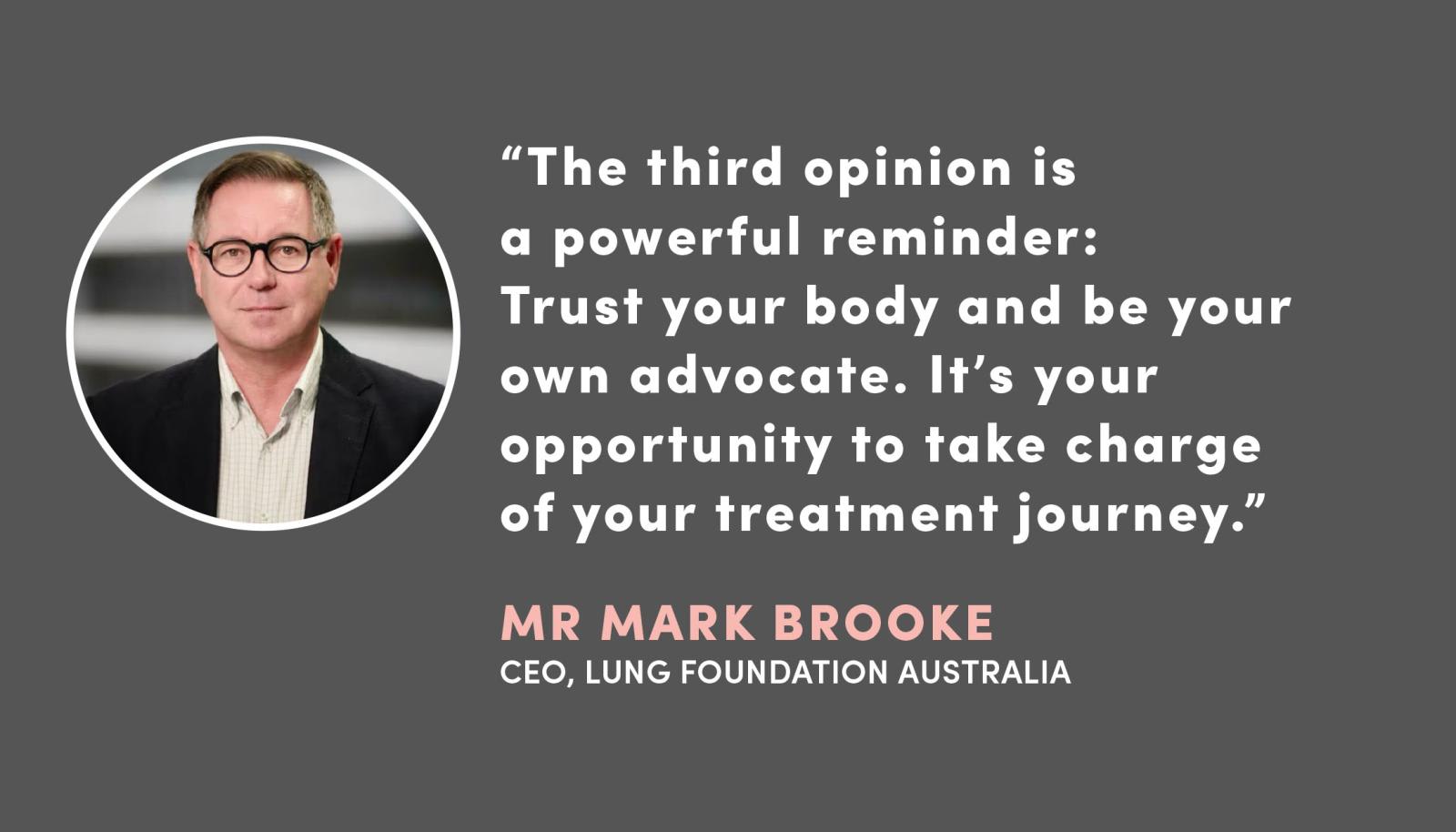
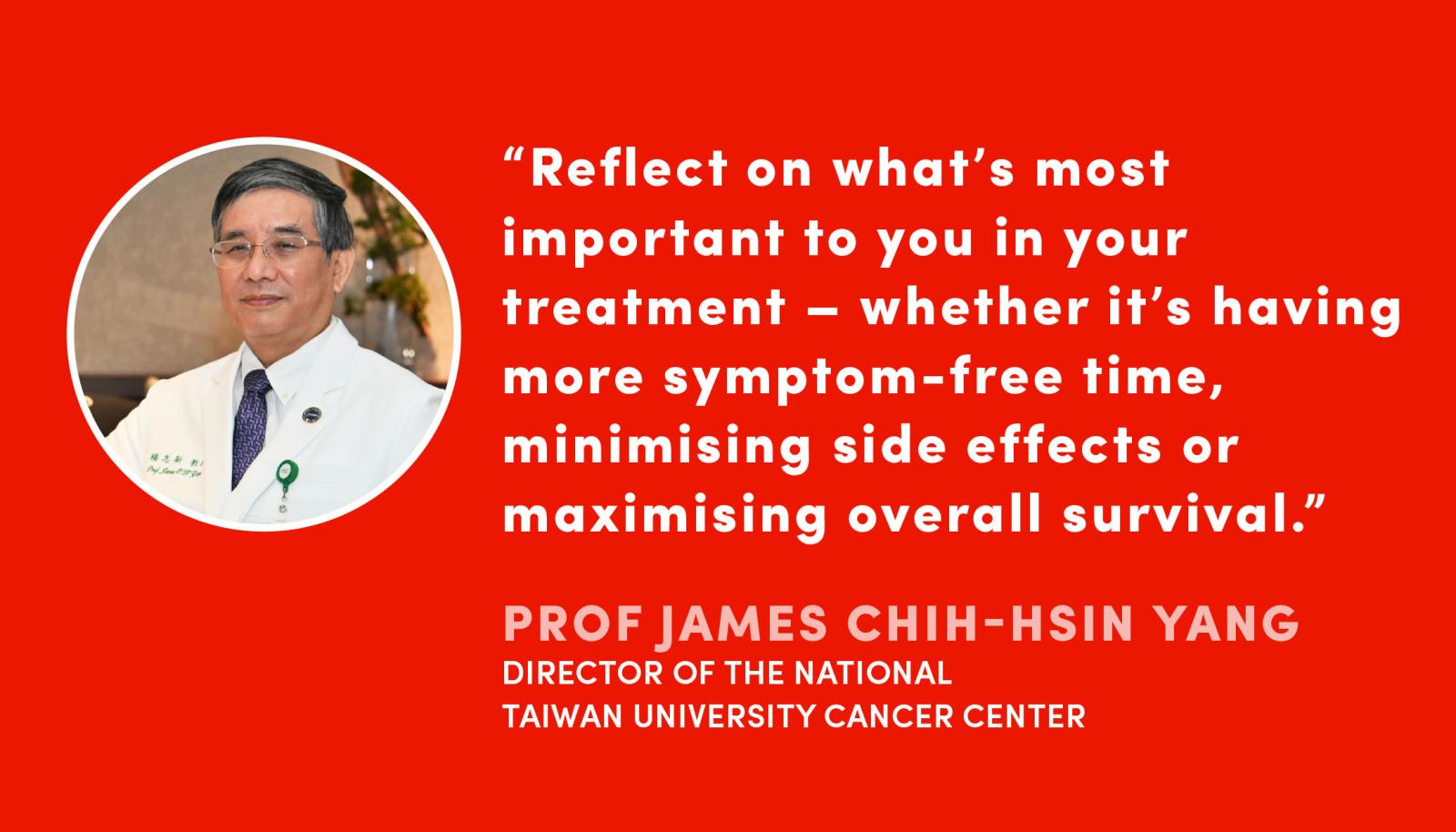
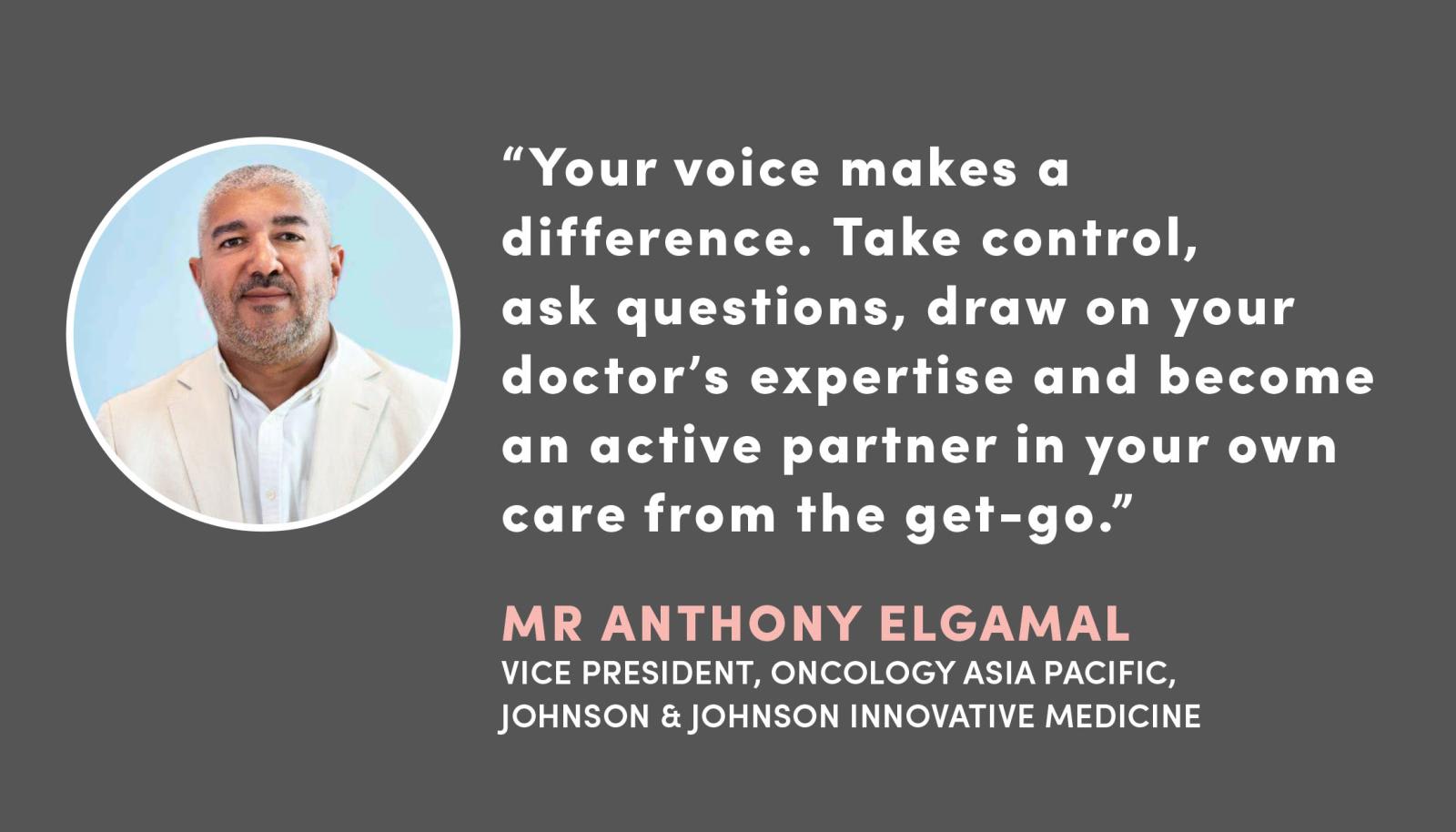



PARTNERING WITH YOUR DOCTOR
To support more meaningful shared decision-making, Mr Brooke recommends asking your healthcare provider these questions:
• Can you walk me through a chronological roadmap of my treatment journey? • I have an important milestone or event coming up on this date – will I be able to attend it? • What are the financial costs of this treatment? • What side effects might I experience and how can I manage them? • What lifestyle changes will I need to make in the next 30, 90 or 180 days to support my recovery?RESILIENCE THROUGH CHOICE
Shared decision-making isn’t just about choosing the right treatment – it also helps build the inner strength patients need for the road ahead. Mr Brooke noted that when people feel heard and involved, their outlook shifts. “It gives them a renewed sense of optimism and helps them look forward to the possibilities ahead.”
Because with the right support, patients aren’t just navigating treatment – they’re reclaiming a greater sense of control and purpose.
List of references:
- What is lung cancer?
- What to know about lung cancer and its common gene mutations
- Predictive value of EGFR mutation in NSCLC patients treated with platinum doublet postoperative chemotherapy
- Five-year survival in EGFR-mutant metastatic lung adenocarcinoma treated with EGFR-TKIs
- A prospective, molecular epidemiology study of EGFR mutations in Asian patients with advanced NSCLC of adenocarcinoma histology (Pioneer)













